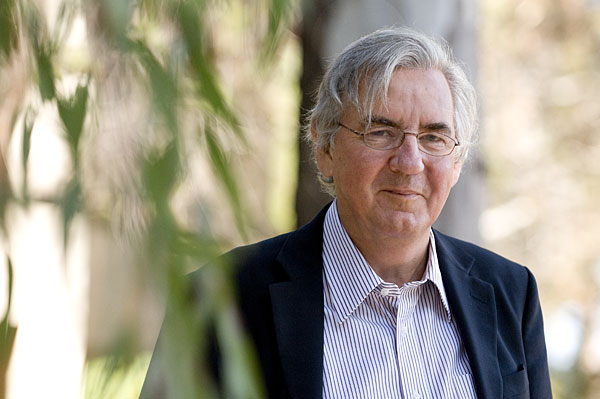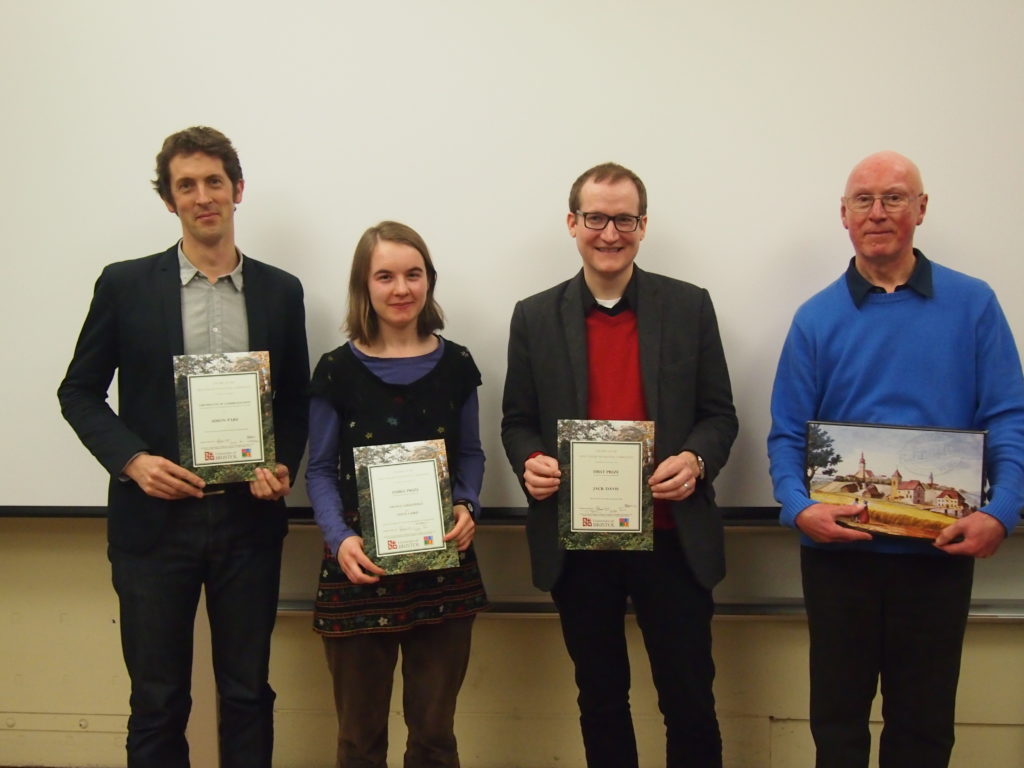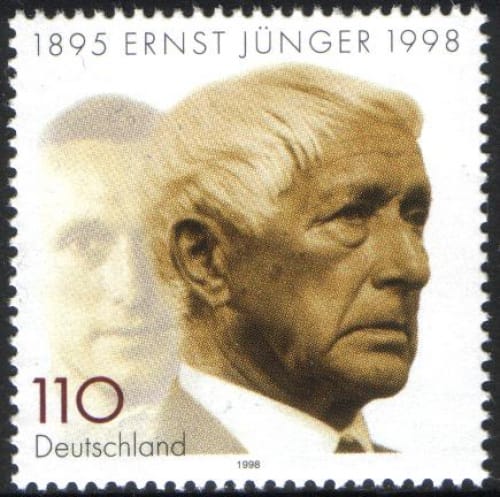A dream. A nightmare. In Limbo where dead poets “set the world to rights” a translator meets a crowd of people – or shades, if you will. Trying to start a conversation with one of them, he is immediately recognized as the one who “ruined my best poem.” The dead poet calls his colleagues and presents to them the “traducer and destroyer of our art.” Then they accuse him of all the possible mistakes a translator can make:
’You buried me with your insipid verses…’
‘You left out my best metaphor, you moron…’
‘You missed my meaning or they set no store on
An accurate rendition where you come from.’
‘He comes from where they send the deaf and dumb from,
He got my metre wrong…’, ‘He missed my rhymes’,
‘He missed my puns I don’t know how many times,
Then shoved his own in…’
Escaping from this threatening scene he is staring at Lethe when he is greeted by another person. “Did you translate?” – “Oh not again,” is his reaction. Gathering a fresh crowd around him makes him feel uneasy. And with good cause, it seems, because a new court-case begins: “Please, why not mine? … You did Z’s poems, my stuff’s just as fine…” After meeting the poets he has translated he now meets those he hasn’t. When he calls to his guide to rescue him, the guide answers: “My dear, / You’ve reached your special hell, it’s here. It’s here.”
Translating the Translator
Dick Davis, born in 1945, poet and translator from Italian and, principally, from Persian, reflects on the work of a translator in his own poetry. He has the feeling of “trespassing in your rooms, / Pilfering your lines, sifting your sacred dust” and thus intruding on someone else’s privacy. He knows that he is someone who “displaces” and is “blind to what / Is literal blood and bone.” The translator, as has often be said, is engaged in an impure activity. He merges voices, links traditions and ways of understanding. Purity, of course, has ethical or even religious overtones. Dick Davis is all the more happy not to be tempted by the “wraith of Purity.” He believes that truth is found when “Lost brothers” – lost in different languages – are reunited by syncretism and its most literate form, translation.
Here Davis has introduced two very difficult concepts: truth and humanity. And he has related them to translation. A poet’s task is to find appropriate words. A translator’s task is similar: to find appropriate words for these other words. A poet is trying to say things that are, at least “only partially untrue.” In his environment he is constantly confronted with signs and “names of absences” of which he has to make sense. They appear as “mute hieroglyphs, hulks of pomp, amulets of love,” traces rather than appearances. For Dick Davis, the search for clarity and the search for appropriate words always go together – but always only for a while, before they part. Poetry leads into twilight. And translation leads even further into it.
The poem “Translating Hafez” presents a translator at the “hour of cow-dust”: when the herds come in from the fields and raise a lot of dust. It’s the time when
[…] the sun
Descends behind bare hills
Whose shadow blurs, and renders substanceless,
Parade ground, barrack, flag-pole.
Meditating on his task he calls it “a need / Become its own reward.” The poem closes with two very interesting lines that are marked as being lines composed by the poet in his role as translator: “’It is the night of power, / The book of grief is closed…’” Even though we know that they are a translation, Dick Davis doesn’t tell us that they come from two different languages. And he doesn’t tell us anything about their original context either. If we recall the end of the “Nightmare,” we encounter a similar strategy in its final line: “It’s here. It’s here.” This line was, originally, an inscription on the Red Fort in Delhi and it reads in full: “If there is heaven on earth / It’s here, it’s here, it’s here.” Davis uses these lines in another poem on Joseph Haydn and the Japanese painter Hokusai, this time indeed in the context of a more appealing situation. However, even in this later poem the lines are explained only in a footnote and not in the actual poem. They have become one with the poem and fit into the new cultural context.
What happens in both cases seems to be that poetry is not just, as Nerval says, what survives in translation. I want to take this a little further and ask if poetry was actually what lends itself to the activity of translating, what appears in this activity. I don’t mean that translation makes us understand a significance that had been unclear before. But in some cases translation might bring out what Dick Davis calls truth. Because translation represents the fundamental ambiguity of life. In this context, I would like to mention the German word “zeugen”. It means both “to create” and “to give evidence of”, thus referring to both an original act and to its proclamation. The two meanings go back to the same root, the Middle High German “geziuge” which signifies the appropriation of certain goods and their use. It is this ambiguity, this transcending of the categories of cause and effect that a translation embodies and that the translation of a translation can highlight.
Translation away from home
Life needs signs but these signs never suffice. Language needs life but this life never actually reaches language. “Now you approach the long prepared for place / The language you have learnt, the map you know / Seem childishly inadequate to show / Its obvious, unformulable grace.”
The motive of the search, in the works of Dick Davis, extends beyond the search for the right words. Davis himself, born in England, has lived in Italy, Greece and Persia, once again in England, before moving to the United States where he now teaches Persian at Ohio State University, Columbus. His research interests are in the history and problems of verse translation with respect to medieval Persian poetry in particular. Out of the two dozen volumes of poetry, translations and scholarship published under his name, his favourite is “Borrowed Ware”, a beautiful collection of Persian Epigrams. Besides that, his main interest is in epics, especially Ferdowsi’s Shahnameh. His version of Attar’s Conference of the Birds, however, is clearly the most popular work, having been reprinted ten times. When I visited him earlier this year he told me with a blend of pleasure and melancholy: “I haven’t lived in any place as long as I have lived here now.” The special irony is that he lives in what is labelled a restricted area, an area where formerly no Jews or Black people were allowed to live. It still is a very uniform neighbourhood. In May there were all those banners saying “Support Our Troops.” There are only detached houses in this district. All of them have at least two garages. They all have just the right mixture of flags, basketball equipment and squirrels. Dick Davis lives here with his Persian wife and their two daughters. But Upper Arlington forms a sharp contrast with the rest of Columbus. The city has been described as a shore where people from the most different backgrounds arrive. And they all bring their music, their food and their beliefs. Does Dick Davis want to move out? What does he make of the fact that the only time he visited a football match was when his outstanding scholarly achievements were being recognized – the award being handed over right before the game? He doesn’t mind. Life is, like translation, about compromises. The journey, however, goes on in poetry.
Wandering and exile are always related to changing attitudes towards one’s original and the new languages. Love, for example, is difficult enough to talk about. But in another language? It becomes “A stream irregularly dammed / With unshaped stones / That swerve the current in its course– / The meaning crammed / Through unfamiliar channels, in new tones, / With a choked force.”
(Just a brief technical note here: You will, of course, have noticed the unstable metre in this last, choked, line. Metre is, in the words of Dick Davis, a necessary element in poetry: “If there is no metre, it’s not poetry,” he simply says.)
Translations blend perspectives. It is a strangely necessary activity among incomprehensibilities. The results are never good enough and yet it is indispensable. Meaning arises in mediation. This is not a philosophical statement (or, at least, not only); it has tangible effects on daily life. In “A Letter to Omar,” the poet Omar Khayyam, Dick Davis writes that if he hadn’t been attracted by an English translation of Omar’s works, he would never have gone to Persia – where he met his future wife. Without the translation of Omar Khayyam’s work he would not have had the children he has now. Davis feels a very personal need to do his work. The translator is an ambiguous figure himself. He is, as we all know, a traitor. And Davis quotes this opinion in the Letter. And he rhymes it with translator. Does he really? Let’s look at the stanza about the Iranian revolution that forced the Davis family to leave Persia and to move to England:
And every faction would find you a traitor:
The country of the Rubaiyat’s creator
Was fired like the stubble as we packed our bags
And sought the province of its mild translator.
There we have traitor and translator. But there is also the creator. In fact, the poet himself is labelled a traitor – if only by raging Ayatollahs.
The poet incorporates translations into his poetry. He is a very active translator himself. He lends his voice to others, mediates, and still claims to be an author. Are we entitled to call this dishonest? Illusionary? We aren’t.
Translating from German into German?
How do you translate a translator? How did I try to translate Dick Davis? First, it’s easy. Because, in his opinion, it’s not only metre but also paraphrasability that makes good poetry. Secondly, we have seen that many of the translations he incorporates into his poetry are not marked as being translations. Thus, what I do is translating Davis and nothing else. This has its own challenges. His favourite words, words of twilight and ambiguity, are all rather difficult to render into German. Take “blurred” which in the first version of his first volume of poetry the author used several dozen times. “Verwischt, verschwommen, unklar, unscharf, vernebelt” – I don’t want to bore you with a more exhaustive list. “Dawn” makes another good example. An unsuspicious monosyllable in English, it becomes “Morgendämmerung” in accurate German. Taking refuge in a word like “Frührot” not only produces a very odd sound but also elevates it to a language far removed from the casual and easily accessible tone that Davis prefers. Equally complicated are the many English expressions for “to see”: to scan, stare, glance, look at, glimpse at, and so on. A sentence like “All night he scans the changing sea” confronts you with this hardly translatable term. In addition to that, it offers a temporal expression which, in German, is constructed as an elaborate accusative “die ganze Nacht,” and a participle as dense as they always are in English. The German word for “change” in this context is reflexive (“sich verändern”). The participle of a reflexive verb preceding a noun – die sich verändernde See – that’s too much for the diligent German language. The best alternative I found, “die bewegte See”, works grammatically but the sound structure (4 consecutive “e”-sounds) contradicts the idea of motion.
Of particular interest for me were the allusions to and the quotations from the German. “I betrayed and I was betrayed,” is how the poem entitled “Epitaph” starts. This time, the poem is not about translating even though it goes on: “Wistful for righteousness I added to / The world’s evil.” In my German version the first line reads “Ich betrog und ich ward betrogen,” using the slightly old-fashioned form “ward” instead of “wurde” for rhythmical reasons and because the language in this poem is not exactly casual in the first place. When I showed this to Dick Davis he smiled and said that his line was actually a translation from German, from Wagner’s opera Götterdämmerung. In its second act Gunther sighs: “Betrüger ich – und betrogen! / Verräter ich – und verraten!” However, we agreed that this reference is not very obvious and that it is made to a particular content rather than to actual words. I left my translation unchanged thus having translated Dick Davis and Richard Wagner at the same time. This, of course, brings up the difficult question of intralingual translations which I do not want to deal with here.
Another interesting case is the famous and typical German word gemütlich. Alongside the terms Weltschmerz and Lebensraum they are part of a vocabulary which is not on the whole used in German anymore – for the very reason that these words have become so stereotypically German. And, of course, that’s the last thing a German wants to be. So the problem here is that, when the word is used in an English poem, connotations are very different from the ones a German native speaker has in a German conversation. The short poem “The Sentimental Misanthrope” runs like this:
You get things clear, define a space,
And find you hate the human race:
But act gemütlich, let things slide,
And it’s yourself you can’t abide.
It all comes down to the question: Is “gemütlich” the right word for gemütlich? I doubt it. For the simple reason that, in German, one cannot really act gemütlich. The word is hardly ever used as an adverb. The rest of the line, “let things slide,” doesn’t imply an action either. If the idea is “to make yourself comfortable, to relax,” then it comes close to an expression like “mach es dir gemütlich.” And this, indeed, would be very German.
Translating Dick Davis
We now have a first impression of the role that translation plays in the works of Dick Davis. We have seen some isolated instances of challenges to anyone seeking to translate these works into German. What I would like to ask as a last question is: What is my role in all this? At the end of two poems Davis emphasizes the spatial, temporal and cultural distance he feels from those figures he has described in them. “Ibn Battuta,” about the famous traveller conjures up certain moments of his journey. They become so tangible that
[…] you almost feel
Across the centuries the pressure of
Your own hand against his arm, and hear
Your own voice raised in greeting.
And the characterization of the multitalented painter Mirak ends with the humble line: “Or so we picture him, at this blurred distance.” Translating this into German is not particularly difficult. Why? Because my spatial, temporal and cultural position is not much different from Dick Davis’. We live at the same time (even if we don’t belong to the same generation), we both live or lived in England, we both live in Western, occidental, liberal countries (even though I do not want to play down the growing transatlantic estrangement). But there is one thing we don’t share, and that’s language. And this is again where my position becomes – at least a little – more relevant. Once again, this becomes obvious in poems that deal with German culture. Like “Late”:
Late
A glass of wine (the third or fourth tonight)
And Hafez read by fire- and candle-light.
Act Two of Tristan. As the record plays
German and Persian merge in Sehnsucht’s haze.
Now firelight, music, poetry combine
To bless the mind already blurred with wine.
The crucial point here is that there are actually three parties involved: German and Persian culture and an American (or British) person encountering them (marked by the language of the poem). If this gets translated into one of the languages of the two cultures perceived by the person who reads and listens to the music, the impression given is completely different and seems to suggest a foreign visitor (from Persia) coming to merge with Wagner’s music. One might, for a moment, substitute for “Tristan” an opera by, say, Vaughan-Williams or Frederick Delius to see the effect (even though “Fennimore and Gerda” sounds rather different from Tristan).
But aren’t all these other operas one could come up with essentially Wagnerian? Doesn’t the concept of “Sehnsucht” imply some connection to German cultural history? And isn’t the understanding of music universal and translingual anyway? How about the reference to Bruckner in the poem “I have been here…”? “Bruckner’s contumacious passion / Breaks over me” – does someone in present-day America understand this differently from someone in present-day Germany? Probably not. But what the poem does is to introduce another perspective. And in this case it is actually lost in translation whereas in others it can be added.
Translation opens up perspectives, and translating a translator’s work can indicate how this happens. The translator looks over the poet’s shoulder, and sometimes, as in the last two poems I just quoted, it is the other way around. A dual-language edition, in these cases, is of particular importance because it makes the reader aware of how little actually does not need to be translated.
- This paper was presented at the Conference “Poetry in Translation” at Oxford Brookes University on Dec 4th, 2003. It was first published in The New Compass.
- Photo von







